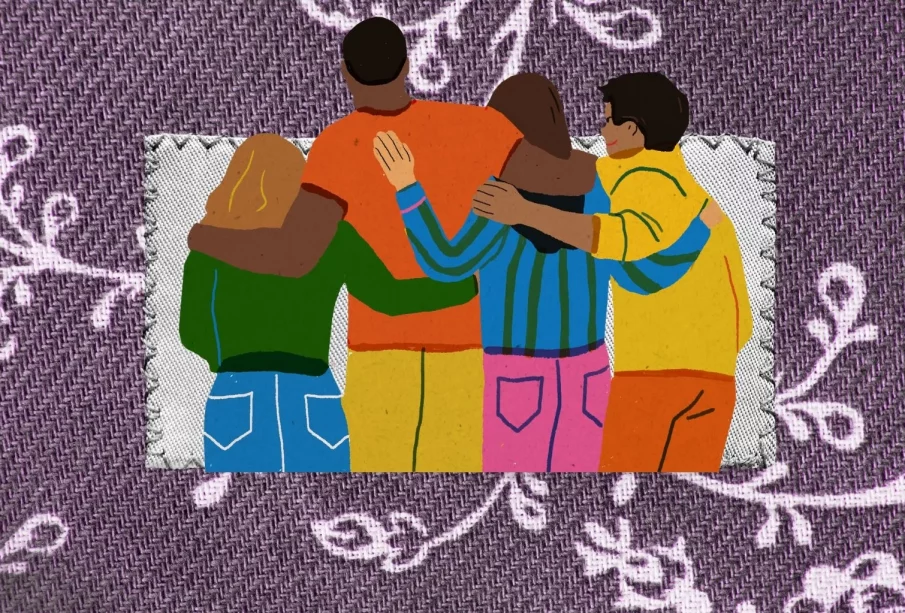Sincerely, a recovering perfectionist
Being a first generation immigrant means that I am no stranger to the dire need to be perfect. Friends of mine in this not-so-exclusive club have made it apparent that we are all fighting this demon called the imposter syndrome. The most common reason I have heard for this is the pressure of making the best out of immigrating. Many families leave their home country to give their children a better life; it then becomes a priority for these children to make the most of this opportunity and give back to their parents by becoming someone they can be proud of. That itself is not easy when coupled with the constant struggle to feel like you belong in a world where everything and everyone constantly reminds you of how different you are.
I grew up having to compete. My school years were spent being pitted against family friends and the neighbourhood kids. Like others, I earned the glorious title of the academically gifted child, praised by adults for my ability to stay in the honour roll and get good grades. Awards were framed and medals were hung on the wall of my childhood home. At 13 years old, I immigrated to Canada and was able to adjust quickly to the way of life. However, I wasn’t prepared to face the heightened pressure in this cooker.
Doing well in school is often a common ground all first generations understand. Getting good grades wasn’t enough, one must think about their future! For those coming from dual or low-income households, post-secondary education is a luxury and a privilege. Some of us are also first generation post-secondary students, meaning we are presented with opportunities in our careers that our parents did not get. A diploma might have been a result of passing my classes, but being able to go to university is the product of our parents’ gruelling hard work. It becomes natural for us to want to give back to them, and graduating university is only the beginning of expressing gratitude.
A diploma might have been a result of passing my classes, but being able to go to university is the product of our parents’ gruelling hard work. – Lee Lim
Even if you don’t have parents that expect perfection, you still can’t escape from the pressures of society. We hear success stories of first generation immigrants all the time, and it adds to the need to be near-perfect. Have you heard about the ones who have gotten far in their high income careers and were able to make their parents retire? If someone who comes from a similar background as you can make it, what’s your excuse? This is a question that loops around in our heads and unfortunately, only amplifies the imposter syndrome. Success is measured and quantified for us, so doing and being the best is the standard.
At 23 years old, I have experienced graduating from university and getting a “big girl job”. Even with those accomplishments, for the longest time I’ve felt that I haven’t done enough. I didn’t graduate with honours, I don’t have the most impressive CV, and I am not particularly earning a wage that can sustain my life outside my parents’ basement.
If this is resonating with you and these thoughts often ruminate in your head, then I encourage you to be kinder to yourself. We struggle with acceptance and forgiveness, and it is hard to learn when you have spent most of your life chasing greatness.
Success is measured and quantified for us, so doing and being the best is the standard. – Lee Lim
This high stake race often leaves us feeling burnt out. I cannot count how many of my friends in the same position had to give up on their true passion to pursue a path that would make their parents happy. As a result, they feel unhappy, unfulfilled, and lost in life. Similarly, in my younger years, I aspired to be someone who could bring “home the bacon”. At the time, that meant pursuing a career in STEM and ignoring my arts-inclined personality. Over this bitter course of my life, I never did well in those subjects and shined more in places that allowed my creativity to be expressed. It took a long time, but I have started to include my own wants and needs in my decisions.
If you see yourself reflected in any parts of this story, I see you and I am proud of you. There is a large community of us who are trying to overcome shame and disappointment from never becoming that golden child. I urge you to give yourself some grace, we have had to assimilate to a new environment while navigating internal and external pressures. If there is one advice I will impart, it is to not sacrifice your happiness and learn to believe that you are enough because you truly are.










